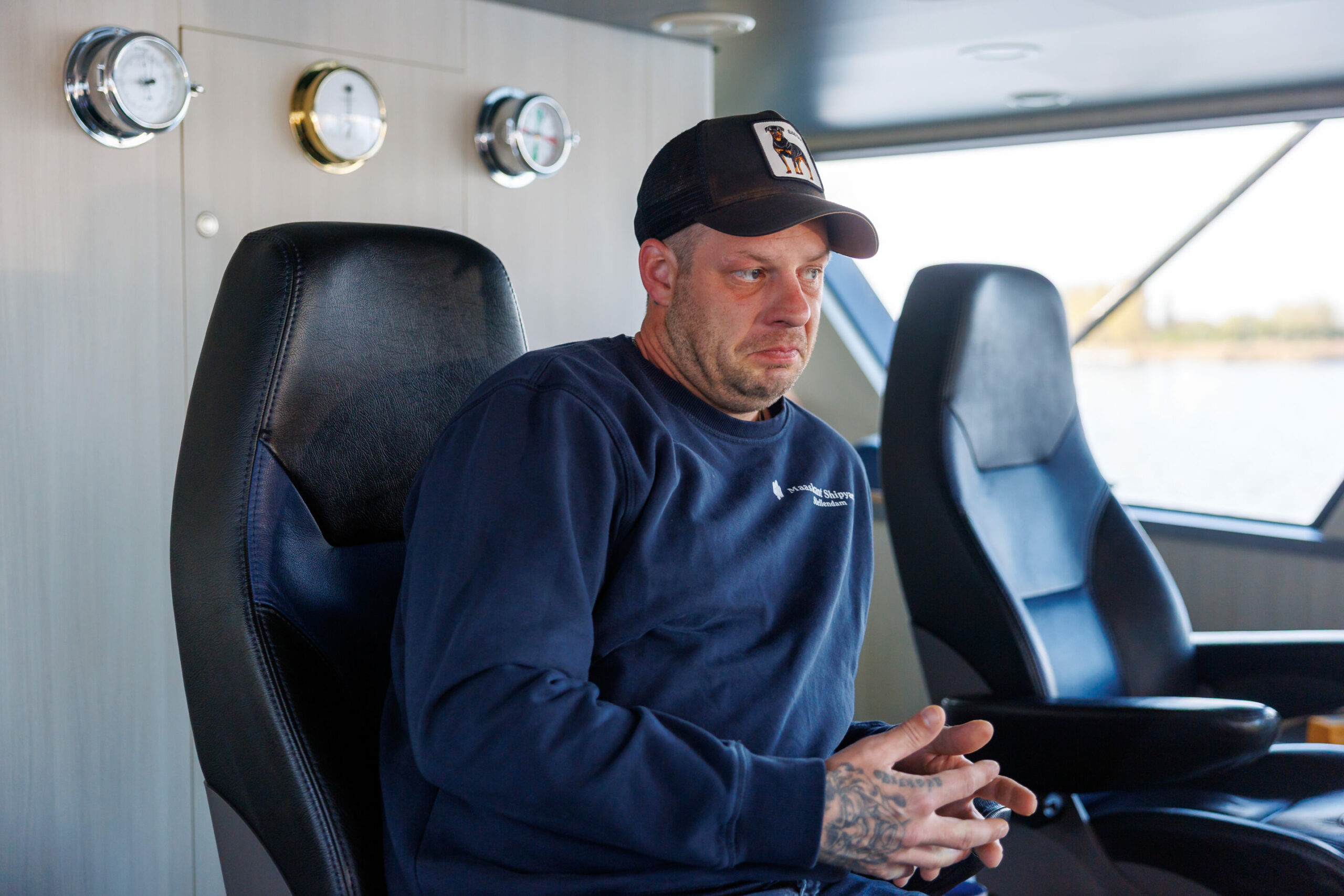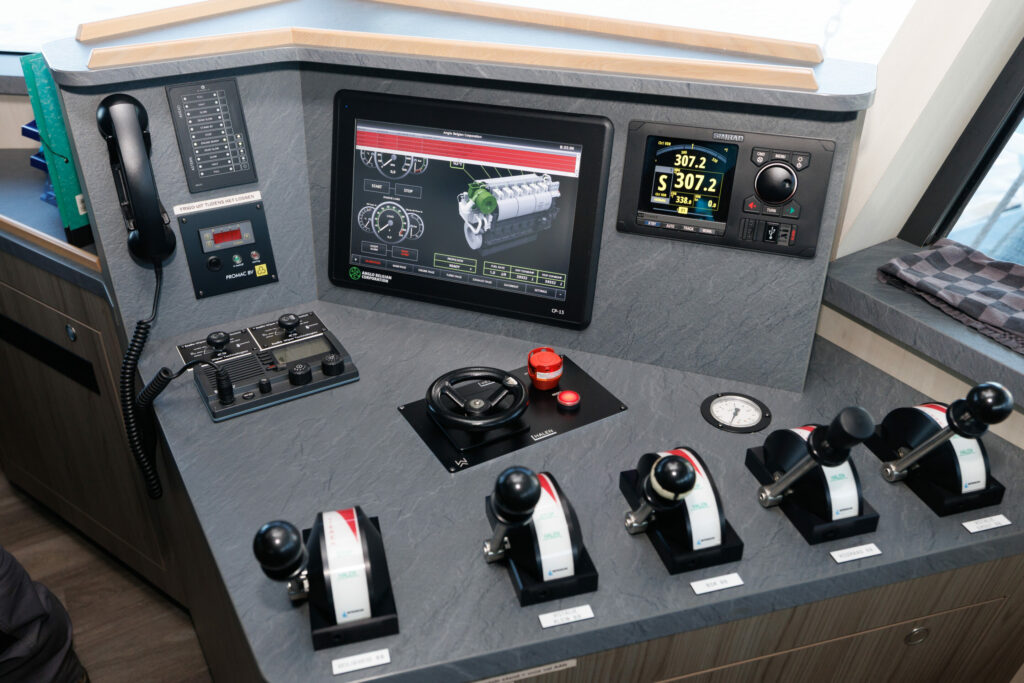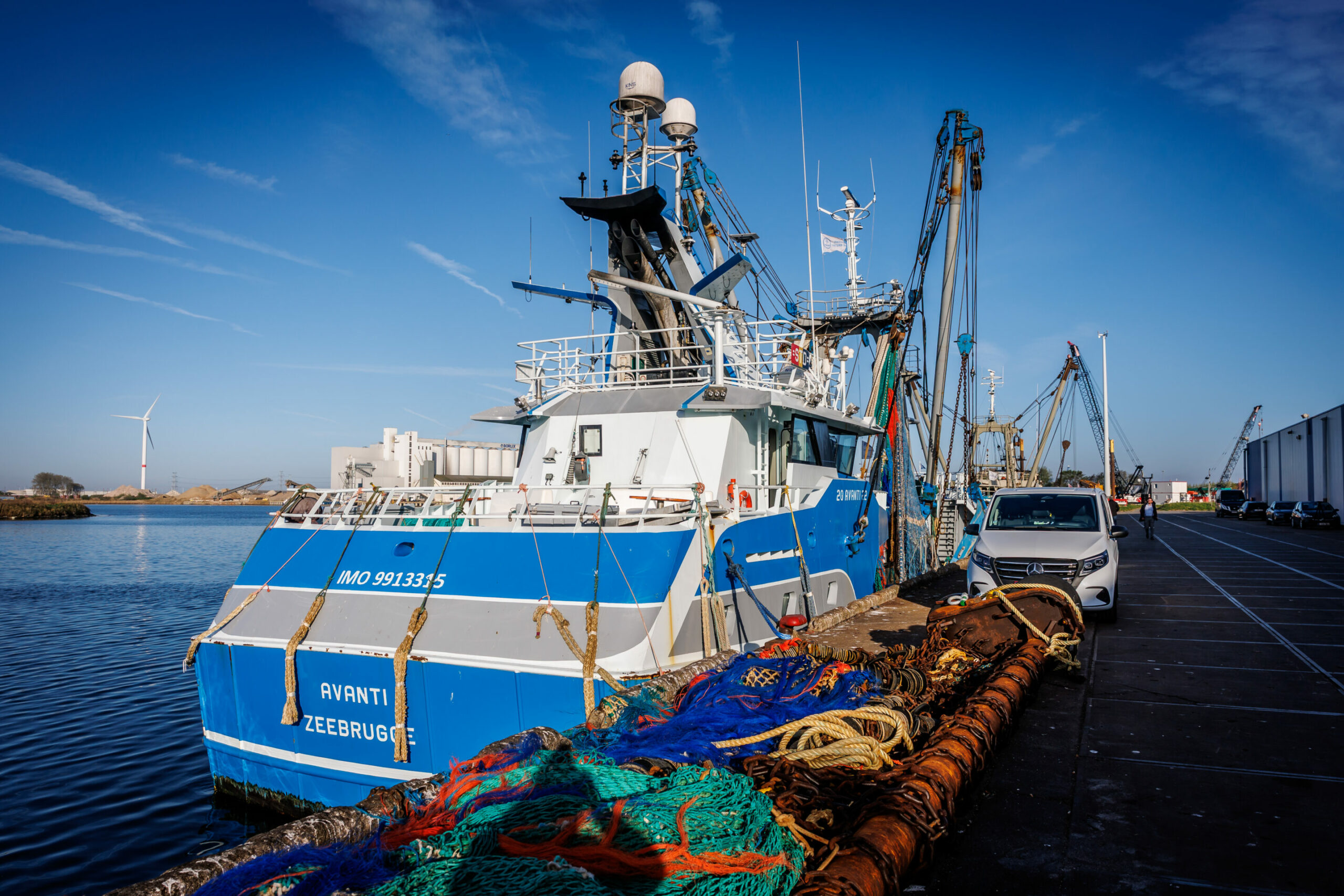Belgian fishermen arrested 'like criminals' by UK in post-Brexit row
Picture taken during a visit to the 'Z.26 Avanti' fishing boat in Zeebrugge on Monday 14 April 2025. Credit: Belga/Kurt Desplenter
Five Belgian fishing boats have been subjected to "disproportionate" and "unprecedented" strict checks by British authorities last week. The economic damage has been severe.
Last Tuesday and Friday, five Belgian boats were fishing in British waters in the Bristol Channel outside the 12-mile zone (the territorial sea that extends 12 nautical miles from the low water mark and is subject to UK law and its jurisdiction) and were checked by British authorities in a coordinated action.
"There are agreements among EU countries about where they can fish for certain types of fish, such as sole or megrims. These countries perform regular checks on each other to see if these agreements are respected," Leontien De Wulf, spokesperson for Flemish Minister for Sea Fisheries Hilde Crevits, told The Brussels Times.
During such a check, a technician usually goes on board a fishing vessel, asks the crew for access to the computer and is then given it. This normally takes no more than an hour.
Treated 'like criminals'
In this case, however, the UK control service held up four vessels at the same time, instead of one at a time. Their holds were sealed, the men were placed under arrest, and they were forced to sail to a British port some 150 km away (8-9 hours of sailing). There, the vessels' hard drives were confiscated.
One of the fishermen testified that he was not even allowed to go to the toilet alone and that they were treated "like criminals."
"The arrests were made without giving any reason," De Wulf added. "Only at the end, after the hard disk was confiscated, were they told that they were suspected of incorrect logbook registration, but without specification of voyage or period."
According to one of the skippers, the check resulted in an economic loss of some €40,000, citing fuel consumption and manpower who had to be paid, among other things. "This control and the arrests left a big impression on boaters and fishermen. There is anxiety in the sector."

Skipper Clancy Snauwaert pictured during a visit to the 'Z.26 Avanti' fishing boat in Zeebrugge on Monday 14 April 2025. Credit: Belga / Kurt Desplenter
De Wulf stressed that the existing agreements between EU countries ensure that these controls are carried out with as little disruption as possible. "But since Brexit, the UK no longer belongs to those countries, and there is not really an agreed-upon procedure now. But even taking that into account, this was very far-reaching and disproportionate."
While this is the first time Belgian fishermen have been treated in this manner by UK authorities, De Wulf added that the negotiations with the UK about who is allowed to fish where have become "more difficult" since Brexit. Belgian fishermen in UK waters primarily target sole, monkfish, skate, and plaice.
Post-Brexit, the UK has allowed European fishermen to continue fishing in their waters. However, the Brexit deal foresees a gradual and 25% decline in European fishing rights in UK waters by 2026.
On Monday, Flemish Minister for Sea Fisheries Hilde Crevits travelled to Zeebrugge for talks with the crews, and spoke of an "unprecedented and assertive approach" by the British authorities. She will raise the matter with the British authorities, but also with the European Commission.

The ship's equipment was seized on suspicion of 'misreporting' or 'incorrect logbook registration.' Credit: Belga/Kurt Desplenter
Contacted by The Brussels Times, a spokesperson for the UK's Marine Management Organisation (MMO) confirmed that the organisation led "a multi-agency operation" in the Celtic Sea on 8 April 2025 in response to intelligence relating to "potential breaches of UK fisheries regulations."
"A number of vessels were detained [and brought] to port to enable evidence-gathering before being released," the spokesperson added. "As this is a live investigation, we are unable to comment further at this time."
The MMO's enforcement activities are risk-based and intelligence-led, focusing primarily on where seasonal fishing activity is taking place and where intelligence suggests there is heightened risk of illegal fishing activities. Officers can board and inspect vessels, order the detention of vessels, and seize evidence, equipment, and illegal fish, as well as prosecute cases in a criminal court.
The operational staff monitor the movements of all fishing vessels outside the 12-mile zone, including non-UK ones, using tracking technology 24 hours a day. Its systems enable fisheries assurance officers to assess the risk of illegal activity and to take action where required.
EU-UK defence deal
This happened against the backdrop of the EU's High Representative for Foreign Affairs and Security Policy Kaja Kallas suggesting that negotiations over post-Brexit fisheries rights should not hold up talks on a new EU-UK defence pact.
EU Member States reportedly want to link future access to British waters (post-Brexit fishing arrangements are due to expire in June next year) to ongoing talks on a wider "reset" in some areas, including defence spending.

Picture taken during a visit to the 'Z.26 Avanti' fishing boat in Zeebrugge on Monday 14 April 2025. Credit: Belga / Kurt Desplenter
The UK Government is aiming to strike a defence pact with the EU, alongside a wider renegotiation of the UK's trading relationship. Speaking to the BBC, Kallas said she was hopeful a wider deal could be struck at an EU-UK summit next month.
However, she was "surprised at how important the fish are, considering the security situation," she added, referring to the war in Ukraine. "But I am definitely pushing this from my side, because I think the UK is a very important defence and security partner. It is the most logical defence and security partner that we have, and it is a beneficial relationship for both sides."
Related News
Was this article displayed correctly? Not happy with what you see?
If you often open multiple tabs and struggle to keep track of them, Tabs Reminder is the solution you need. Tabs Reminder lets you set reminders for tabs so you can close them and get notified about them later. Never lose track of important tabs again with Tabs Reminder!
Try our Chrome extension today!
Share this article with your
friends and colleagues.
Earn points from views and
referrals who sign up.
Learn more
Save articles to reading lists
and access them on any device